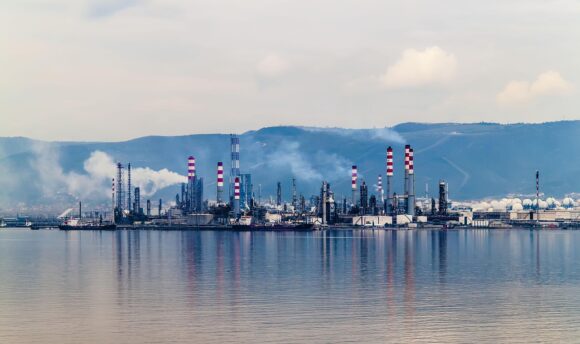The New York climate week opened this morning with the launch of a new asset owner climate alliance. The 12 signatories, among whom we can find the Insure Our Future targets Allianz, Swiss Re and Zurich, have committed to transitioning their investment portfolios to net-zero GHG emissions by 2050. With the 9 others insurers and pensions funds behind this initiative, they manage US$2.4 trillion in assets. The pledge aligns with international targets to keep global warming to a maximum temperature rise of 1.5°C above pre-industrial levels.
Insure Our Future welcomes this commitment. With natural disasters and anti-climate governments on the rise, it’s critical that the financial community moves ahead to fill the gap of regulation and fully commits to delivering on the Paris Agreement Article 2.1c: “Making finance flows consistent with a pathway towards low greenhouse gas emissions and climate-resilient development.” And since the IPCC’s 1.5°C report found in October 2018 that limiting average temperature increases to 1.5°C rather than 2°C will make a world of difference, it’s even more important that the inaction of some is counterbalanced by a higher level of ambition in others.
However, we must be lucid about the challenges the signatories face in meeting their commitment. First of all, regardless of how big Allianz’s and other signatories’ portfolios are, an alignment of the signatories’ portfolios with a net-zero GHG emissions by 2050 would not be possible in a 4°C or more degrees world. Big investors buy the market, and if the market remains very carbon intensive, they could not have a zero carbon portfolio.
Consequently, it will be critically important that signatories convince other asset owners to make the same pledge. Together, they could run joint stewardship and engagement activities towards economic and financial institutions. They could, for example, demand decarbonization plans from carbon-intensive industries and call for the state to end fossil fuel subsidies and scale up other regulatory action to prevent the majority of economic players continuing business as usual.
Secondly, many data and methodologies are still missing to effectively align investors’ portfolio with a 1.5°C target. As this alliance is asset owners only, the signatories may be better positioned than other climate coalitions to collectively develop data and methodologies aligned with other initiatives such as the SBTI.
Nevertheless, although a fair share of unknowns remain about how to meet this 1.5°C commitment, we already know a lot about what is required – enough for asset owners to take immediate action. We can’t postpone action and hope carbon negative technologies will capture emissions we should have avoided in the first place. The fact that carbon capture and storage (CCS) technology is still not commercially operational, despite more than a decade of research, shows the danger of betting on what are today ‘science fiction’ technologies. Asset managers can’t afford to postpone action, but must take bold steps now and in the next few years.
Climate science shows limiting global warming at 1.5°C with no overshooting requires a phase-out of all fossil fuels by 2050 worldwide. Phase-out plans for2050 must start now and be transparent for the public.
Consequently, we could assess how serious the signatories are about achieving carbon neutrality by mid-century, by looking at how they will deal with their holdings in fossil fuels. As the chief executive of the IEA stated last November, there is “no room to build anything that emits CO² emissions.” Allianz, Swiss Re and others should suspend new investment into companies with fossil fuel expansion plans. Only Allianz has started to do so for the coal power sector. It’s time now for all signatories to go a step further and extend this approach to oil and gas.
Moreover, since a lot of existing infrastructure will have to be phased out before it reaches the end of its life, investors should demand their energy sector clients to adopt short, medium and long-term decarbonization targets aligned with Paris and an asset-based plan to close their coal, oil and gas infrastructure by 2050.
Postponing climate action and a failure to act on what we know needs to be done will transform what today looks like a bold climate commitment into a gross case of greenwashing. Allianz, Swiss Re and others: please walk the talk.



